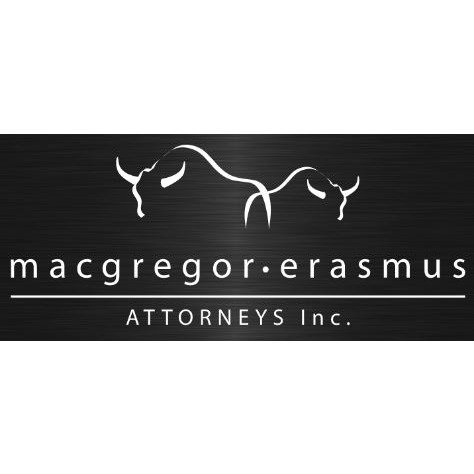Best Private Equity Lawyers in Cape Town
Share your needs with us, get contacted by law firms.
Free. Takes 2 min.
List of the best lawyers in Cape Town, South Africa
About Private Equity Law in Cape Town, South Africa
Private equity refers to investments made directly into private companies or the buyout of public companies resulting in their delisting from public stock exchanges. In Cape Town, South Africa, private equity is a vibrant and growing sector. Local and international investors seek opportunities in sectors such as technology, renewable energy, real estate, and manufacturing. The legal framework governing private equity in South Africa is robust and structured to protect both investors and investee companies, ensuring fair practices, transparency, and compliance with local regulations.
Why You May Need a Lawyer
Private equity transactions can be complex and involve significant financial stakes. You may need a lawyer in the following situations:
- You are an investor seeking to acquire equity in a Cape Town-based business.
- You are a business owner looking to attract private equity funding for expansion or restructuring.
- You need advice on structuring a private equity deal or wish to participate in a private equity fund.
- You are involved in drafting, negotiating, or reviewing investment agreements and shareholder agreements.
- You require assistance with due diligence processes or regulatory compliance.
- You are considering exiting a private equity investment or managing disputes among stakeholders.
- You want to ensure compliance with anti-money laundering and anti-corruption legislation in transactional processes.
Local Laws Overview
Private equity transactions in Cape Town are primarily governed by national legislation, with some municipal considerations. The most notable laws and regulations include:
- The Companies Act, 2008, which sets out the legal framework for company formation, governance, and shareholder rights.
- The Financial Sector Regulation Act, which oversees financial services and institutions, including private equity funds.
- The Financial Advisory and Intermediary Services Act (FAIS), regulating the conduct of financial advisors and intermediaries.
- The Competition Act, which mandates regulatory approvals for certain mergers and acquisitions.
- The Broad-Based Black Economic Empowerment Act (B-BBEE), which sets requirements to promote economic transformation and participation of previously disadvantaged groups.
- Regulations from the South African Reserve Bank concerning foreign exchange control when foreign investors are involved.
- Tax laws, especially those relating to capital gains tax and withholding tax, impacting investment outcomes.
It is crucial to work with professionals who are familiar with these laws and regional obligations specific to Cape Town and South Africa in general.
Frequently Asked Questions
What is private equity?
Private equity refers to capital investment made into companies that are not listed on a public exchange. Typically, private equity investors provide funding in exchange for equity ownership and may take an active role in management and strategic direction.
Who regulates private equity funds in South Africa?
The Financial Sector Conduct Authority (FSCA) is the key regulator of financial markets, including private equity funds, in South Africa.
Can foreign investors participate in private equity deals in Cape Town?
Yes, foreign investors can participate, but such deals may require approval from the South African Reserve Bank. There may also be exchange control regulations that need to be observed.
What is the typical process of a private equity transaction?
The typical process includes sourcing deals, conducting due diligence, negotiating terms, drafting legal agreements, finalizing the transaction, and ongoing management or eventual exit of the investment.
What are the key legal documents involved?
Important documents include the term sheet, subscription agreements, shareholder agreements, management agreements, and disclosure statements.
What is due diligence and why is it important?
Due diligence is the process of thoroughly investigating a company before making an investment, to identify risks and validate information provided by the target company.
Is B-BBEE compliance essential in private equity deals?
B-BBEE compliance is often required or highly recommended, especially if the investment targets or investee companies do business with the government or require licensing.
How are private equity profits taxed?
Profits from private equity are generally subject to capital gains tax, and other taxes may apply depending on the structure and nature of the transaction.
Can disputes in private equity deals be resolved locally?
Yes, disputes can be settled through negotiation, arbitration, or litigation in South African courts, depending on what is stipulated in the transaction agreements.
How do I choose a private equity lawyer in Cape Town?
Look for a lawyer or law firm with a strong track record in private equity, corporate law, and investments, and who understands both local and international regulatory requirements.
Additional Resources
If you need more information or support, consider reaching out to the following organizations and bodies for guidance related to private equity in Cape Town, South Africa:
- South African Private Equity and Venture Capital Association (SAVCA) - Represents the interests of private equity and venture capital firms.
- Financial Sector Conduct Authority (FSCA) - Regulates financial markets and provides relevant legislative updates.
- Companies and Intellectual Property Commission (CIPC) - Handles company registrations and statutory compliance.
- South African Reserve Bank (SARB) - Provides guidance on foreign exchange and foreign investment regulations.
- Department of Trade, Industry and Competition - Information on regulatory requirements and incentives relevant to investors.
Next Steps
If you are considering participating in a private equity transaction in Cape Town, the following steps will help guide your progress:
- Assess your objectives and define what you want from your private equity investment or transaction.
- Collect all relevant business, financial, and legal documentation regarding the companies involved.
- Engage a qualified legal professional who specializes in private equity to review your case and advise on legal compliance, structuring, and risk mitigation.
- Request a preliminary consultation to discuss your circumstances, potential hurdles, and the legal process ahead.
- Stay informed about regulatory updates and industry trends to ensure your transactions remain compliant with local laws and best practices.
Taking these steps will help protect your interests and ensure a smooth private equity experience in Cape Town, South Africa.
Lawzana helps you find the best lawyers and law firms in Cape Town through a curated and pre-screened list of qualified legal professionals. Our platform offers rankings and detailed profiles of attorneys and law firms, allowing you to compare based on practice areas, including Private Equity, experience, and client feedback.
Each profile includes a description of the firm's areas of practice, client reviews, team members and partners, year of establishment, spoken languages, office locations, contact information, social media presence, and any published articles or resources. Most firms on our platform speak English and are experienced in both local and international legal matters.
Get a quote from top-rated law firms in Cape Town, South Africa — quickly, securely, and without unnecessary hassle.
Disclaimer:
The information provided on this page is for general informational purposes only and does not constitute legal advice. While we strive to ensure the accuracy and relevance of the content, legal information may change over time, and interpretations of the law can vary. You should always consult with a qualified legal professional for advice specific to your situation.
We disclaim all liability for actions taken or not taken based on the content of this page. If you believe any information is incorrect or outdated, please contact us, and we will review and update it where appropriate.
















